Introduction
Team: Red Chameleon
Members: Ryan, Willow, Chileshe
We are students at Carnegie Mellon University taking a Physical Computing course, where we learn both mechanical and programming skills to create devices to improve daily tasks such as alarms that alert us when laundry is done or a refrigerator timer to prevent food from spoiling. On Friday, March 30th, we met with Philip, who lives in Squirrel Hill, at his home to see if we can apply the skills we’ve attained to help better a part of his life that he too finds inconvenient. Although he lives alone, he finds time to interact with his community by joining social clubs where he edits newsletters for one of them every month, so there was a lot to learn through our meeting with him.
Agenda
-Bring colored pen and paper, PassBox project, and a laptop.
INTRO
-Introduce ourselves and our intentions.
-Demo Ryan’s PassBox, and explain how it relates to our project.
-Ask for permission to take photos.
INTERVIEW
-Ask about general difficulties.
-Aspects of Daily Life:
- What do you do weekly? What are the difficult activities?
- Categories: social/communication, transit, daily routine, work, leisure/comfort/entertainment, money, shopping
- Where is time wasted? Can this activity be demonstrated?
- Why do you think this is important?
- How do you wish for it to be improved? What kind of assistance would be helpful.
-Technological aspect:
- What does he like and dislike about technology.
- What is his attitude towards digital tech, and does he use it often or does he prefer more analog technology?
DRAWING
-What kind of gadget would be of most use to you?
-Brainstorm ideas by drawing it out, and ask for feedback.
WRAP-UP
-Take photos!
-Tell him project schedule:
- Meetings with older people in their home/community/elsewhere (week of March 26th)
- Documentation of this meeting (due at noon on Sunday, April 1st)
- Quick development and presentation of a “behaves-like” prototype (April 2nd–10th)
- Presentation and crit of these prototypes with older friends (April 11th)
- Elaboration/improvement/changes/finalization of the final project artifact (April 12th–May 1st)
- Final presentations and crits with older friends (May 2nd)
- Final documentation (due week of May 6th)
Meeting summary and major takeaways
Philip discussed his lack of a working mobile phone. In addition, during our discussions with him, he made use of a hearing aid. It seems that Philip also has difficulty reaching his telephone as a result of these two things. His computer does not work all the time, and he expressed a desire for it to be fixed, and for a proper notification system. Philip seems to really like puzzles of all sorts, it seems to be his main past-time, besides writing. For example, he usually had a new newspaper each morning in order to work on puzzles, and he has a hobby of working on novel chess problems. Philip is also member of the Explorer’s Club of Pittsburgh, in which he functions as a writer and chronicler. He also participates in the JCC, where he goes often for a shower and lunch. Observations of his home included, by his description, a lack of organization, and a desire for more stringent guidelines for getting rid of excess. Philip likes to annotate and systemize his photographs for future reference, and to fuel his genealogy hobby. In the near future, Philip hopes to clear out the clutter in his home, and to make a trip to Washington D.C, and a number of surrounding areas.
1ST THEME – PUZZLE
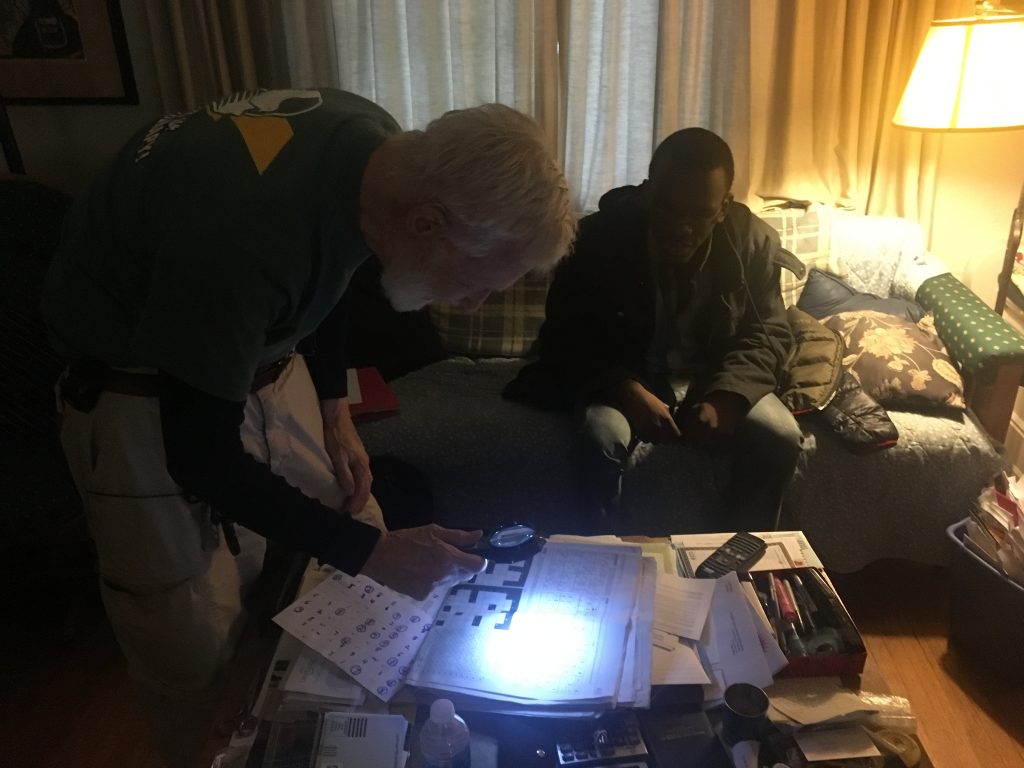
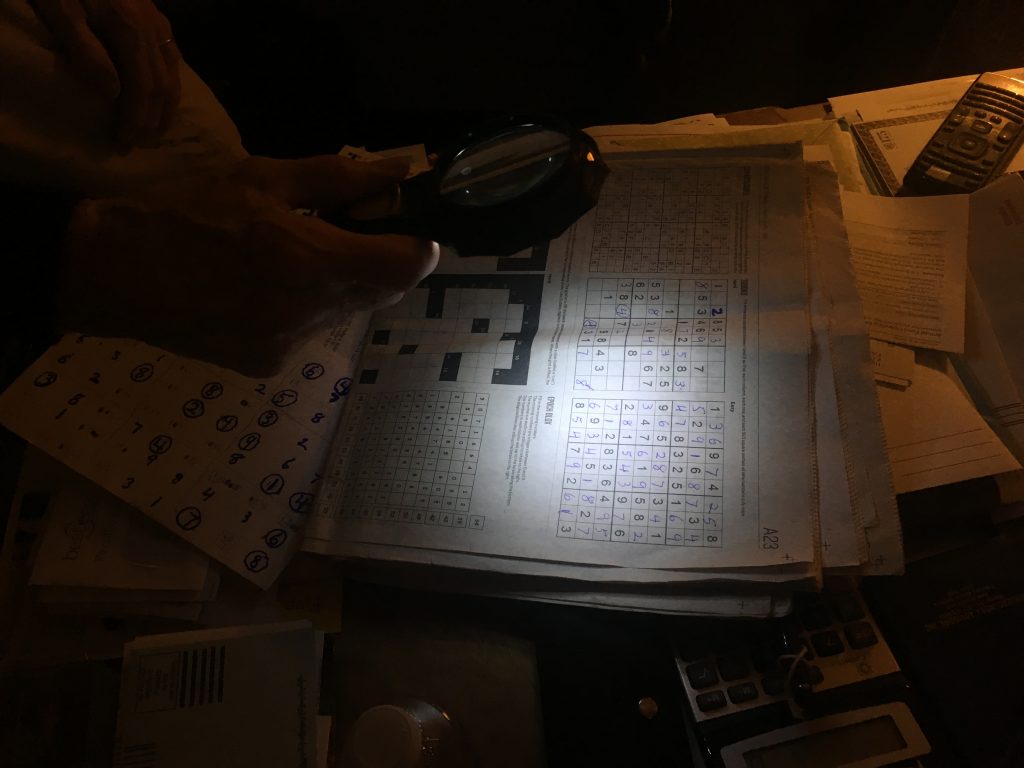

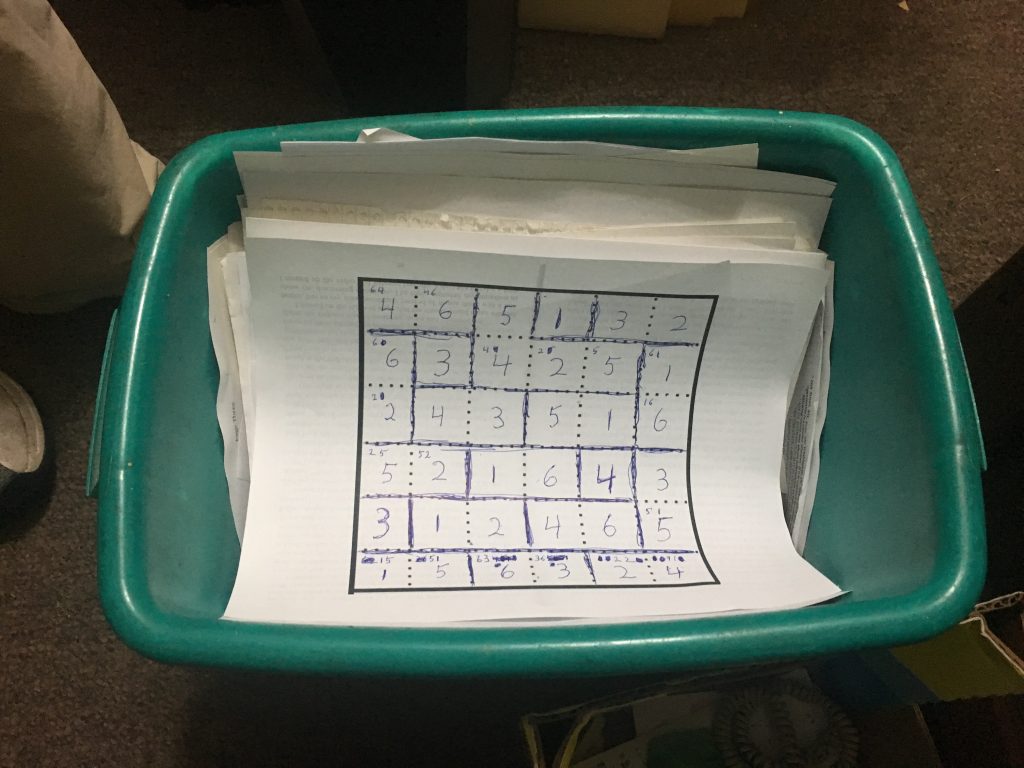
- Willow: A sudoku helper that stores and displays some intermediate stages (via tangible inputs, like Ryan’s PassBox, neopixel matrix showing big numbers? …) as Philip works toward the puzzle’s final solution.
- Chileshe: Possibly, a full on tactile Sudoku-lite game with more random and variant interactive aspects, so that the puzzle would change each time to suit Philip’s interests.
- Ryan: KenKen game that generates a random puzzle, and Philip can input numbers into a box given a keypad and arrow keys.
2ND THEME – ORGANIZATION
- Notes:
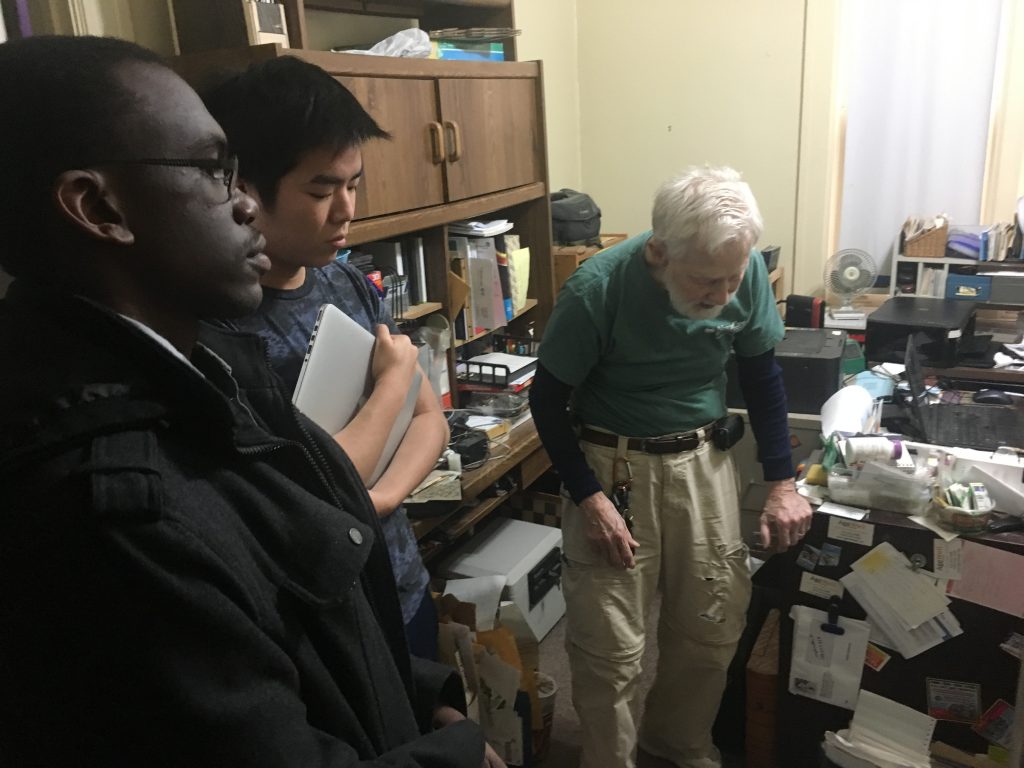
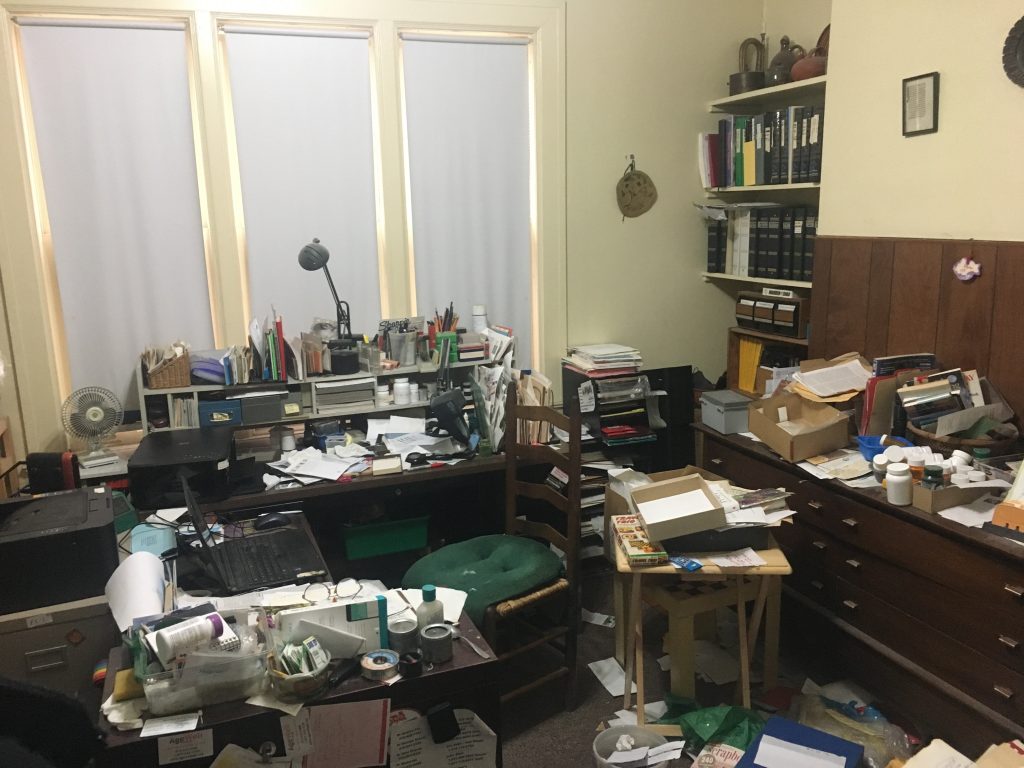
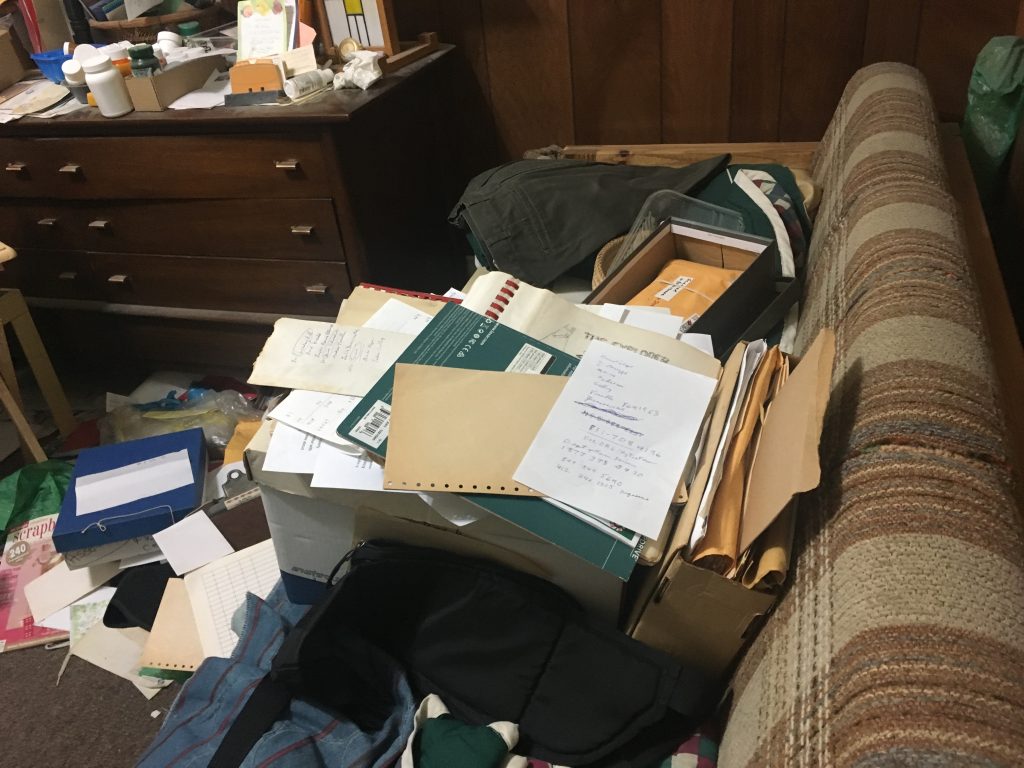
- Project Concept:
- Willow: A small gadget that can be easily attached to tax-related documents, and when Philip needs them later, they will light up or make asound. OR a small gadget that can be easily attached to photos and is linked to the scanned photos’ digital path in Philip’s computer, and as he re-organizes or groups the physical photos in some order, the digital paths can automatically update accordingly.
- Ryan: Similar to the organization of the Physical Computing Lab, Philip can log where he stores a certain document. When he wants to search up where he stored it, it lights up an LED strip to show the location of the document.
Thoughts and Reflections
The meeting went on for 2 hours, which is much longer than we expected. We were not able to do an initial sketch of a possible idea as in our schedule. Philip tended to detract a bit from the initial direction of our discussion, which was entirely fine because he seemed to strongly emphasize his independence. We took this discussion as an opportunity to learn what he really finds enjoyment in his daily life. He found it difficult to focus on the scope of our physical computing project, where he stated no recognition of difficulties which could be within its scope. He often mentioned ideas of projects that he would love to see in the world, like robots that picks up papers and organizes them for him. However, he recognized a product like that is very ideal and not possible to make for students like us.
As far as our personal opinions go, Ryan and Chileshe tended to prefer a slightly more formal approach to the meeting, and Willow was significantly more casual. Her conversational style opened Philip to suggestion, while Ryan took notes, and Chileshe assisted in attempts to steer the discussion.
Looking back, we wished that it would have been possible to focus on the assistive device. Philip was extremely genial, to the extent that he was very open with the more difficult aspects of his organizational projects, which he perceived as requiring a form of AI not currently available. Perhaps providing more examples online of what Physical Computing students work on would have been more helpful to Philip, and to our discussion with him.
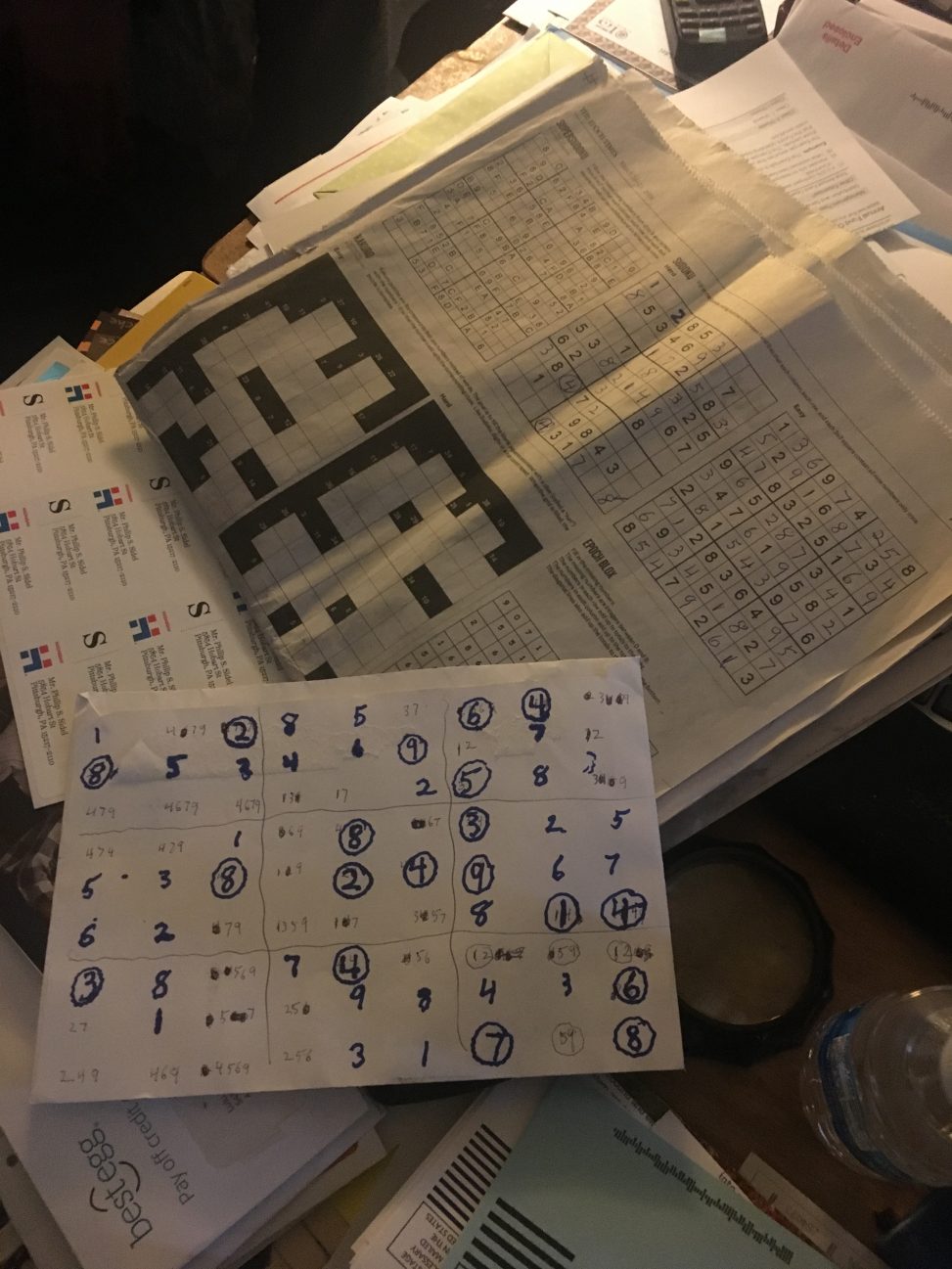
Leave a Reply
You must be logged in to post a comment.